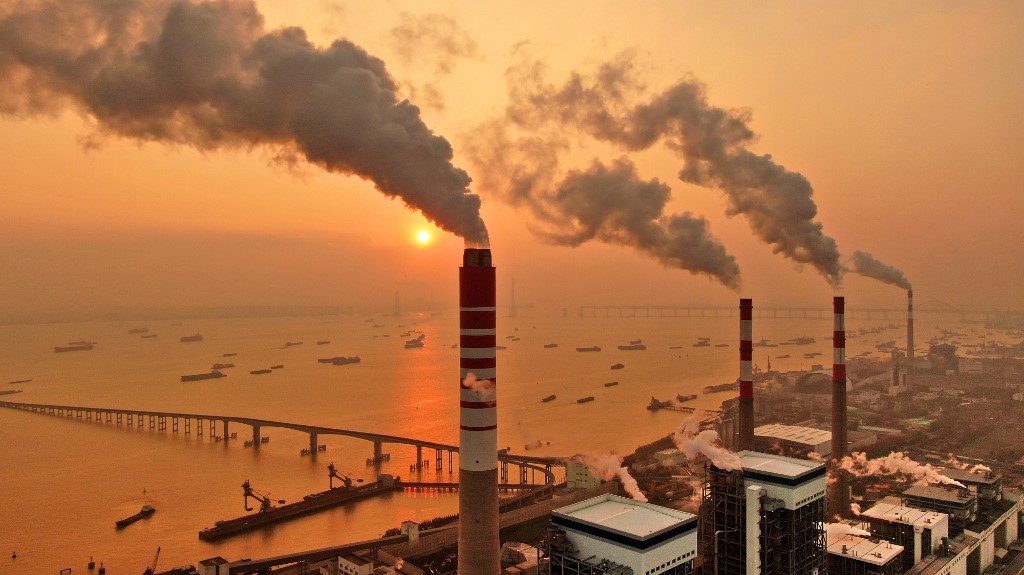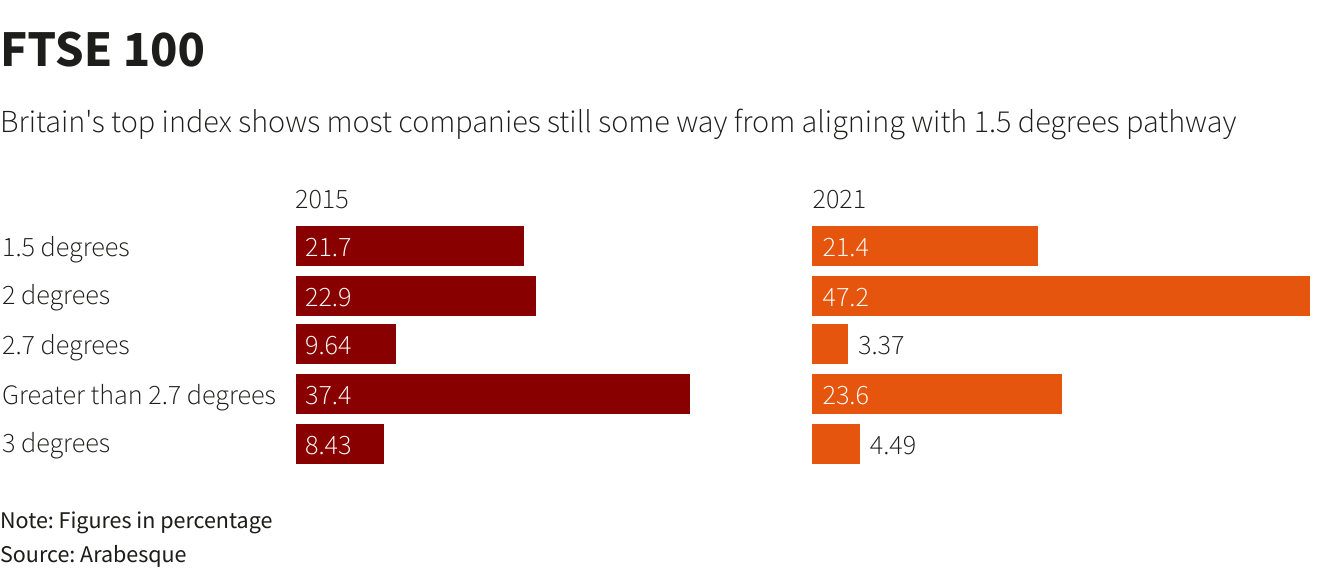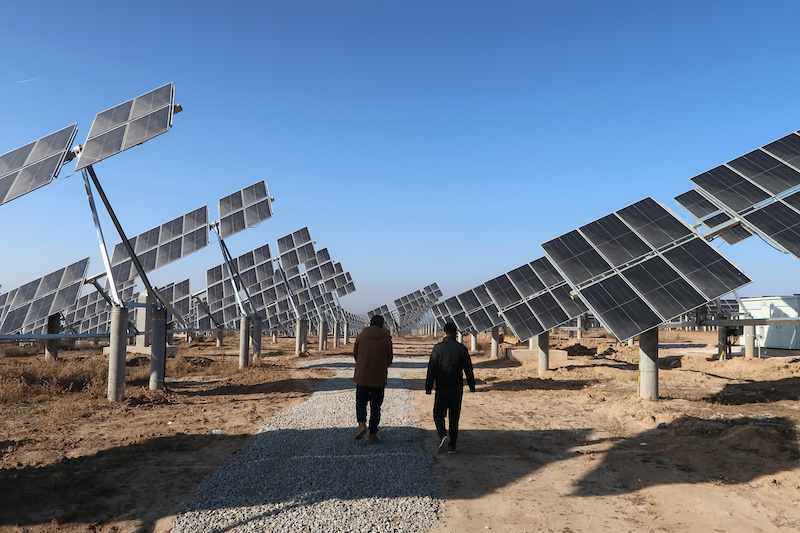The corporate world remains far from being aligned with global climate goals, and in some countries has gone backwards since a landmark agreement to cap global warming was signed in 2015, data shows.
Limiting the world’s temperature rise to 1.5 degrees Celsius above the pre-industrial average by mid-century was crucial in order to avoid irreversible damage to the planet, UN climate scientists warned on Monday.
The corporate world was not moving fast enough towards this target by reducing their greenhouse gas emissions, warned Arabesque, a corporate sustainability data firm and asset manager, in an annual analysis of the world’s main markets.
To reach that target, emissions need to drop by around 45% by 2030; yet, across the globe, they continue to rise.
On average, only about a fifth to a quarter of companies across the markets was on course to hit the global target, Arabesque chief executive Daniel Klier said, even as more boards pledge to do so amid growing regulatory and investor pressure to act.
In two markets, Germany’s DAX 40 and India’s BSE 30, the percentage of companies on course with their emissions reductions toward meeting that 1.5-degree target has actually regressed in the six years since the Paris Agreement was signed, its data showed.
In 2015, 29% of German companies were aligned with the 2050 climate target, dropping slightly to 28% in 2021. In India, alignment dropped from 25% to 24%, whilst in Britain, the figure remained the same, at 21%.
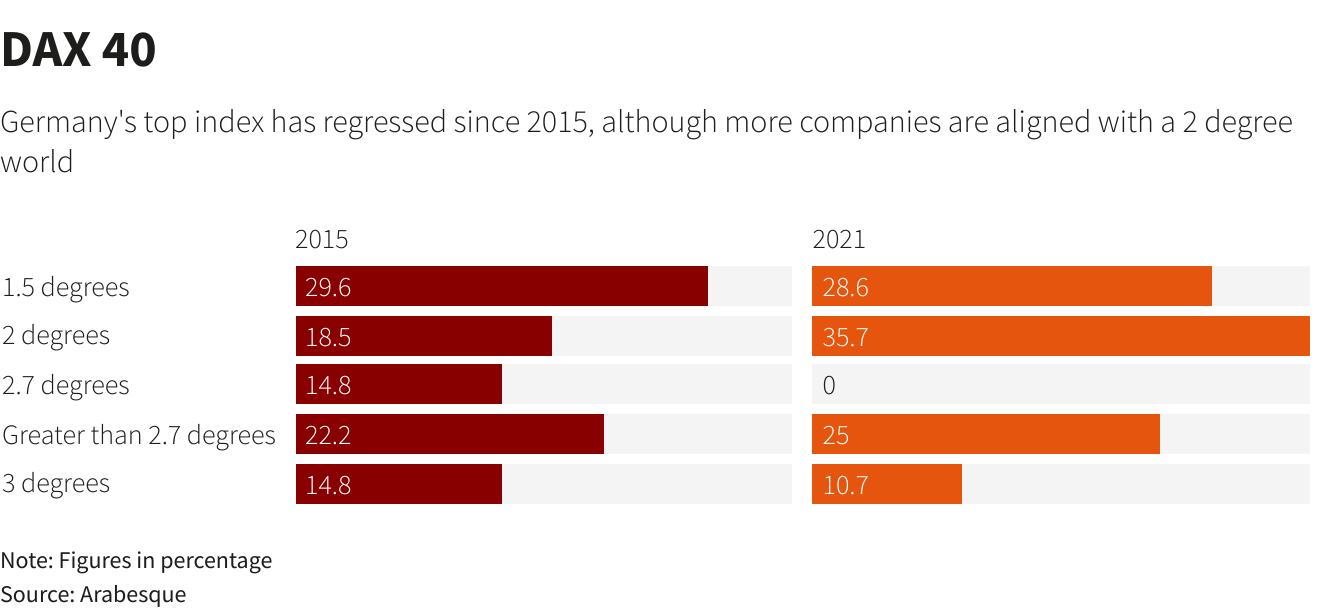
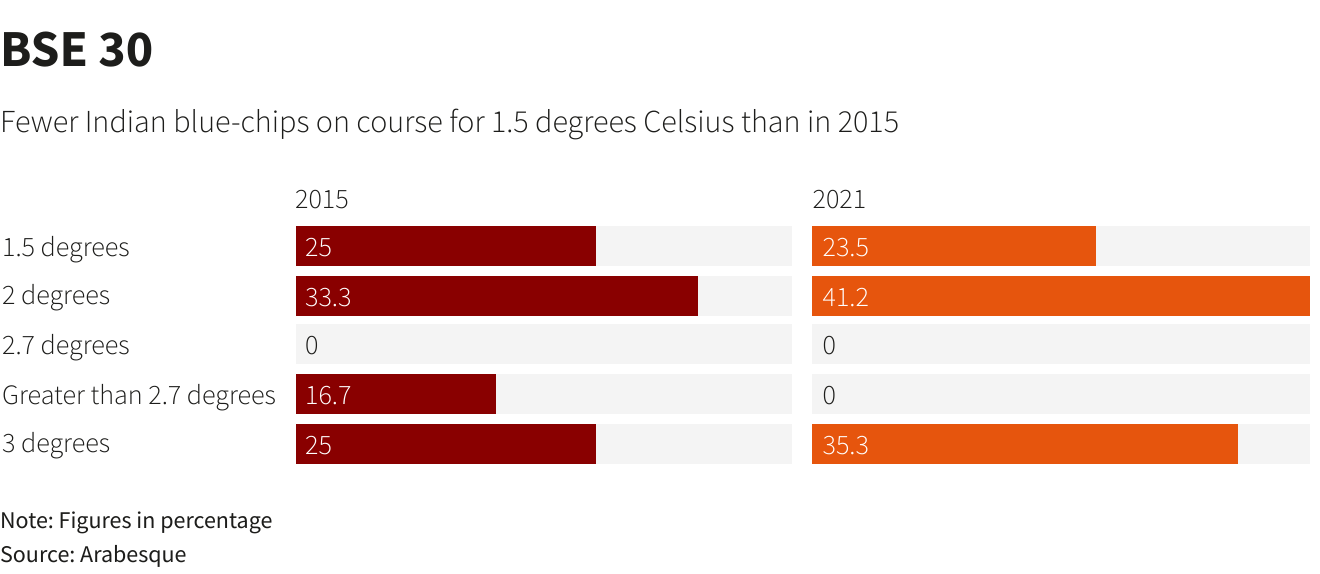
“Broadly across the world, there’s not a lot of progress,” said Klier. “If we want to maintain a world that is liveable, we need to deliver a 1.5 degree pathway. At the moment there are only really 20-25% of companies that fulfil the criteria.”
“It’s increasingly important that capital shifts to those companies which are really delivering, versus companies that have the right ambition but which don’t show the right progress.”
There had been minimal progress, for example, by companies on China’s SSE 50, which edged up to just 4% from 0%.
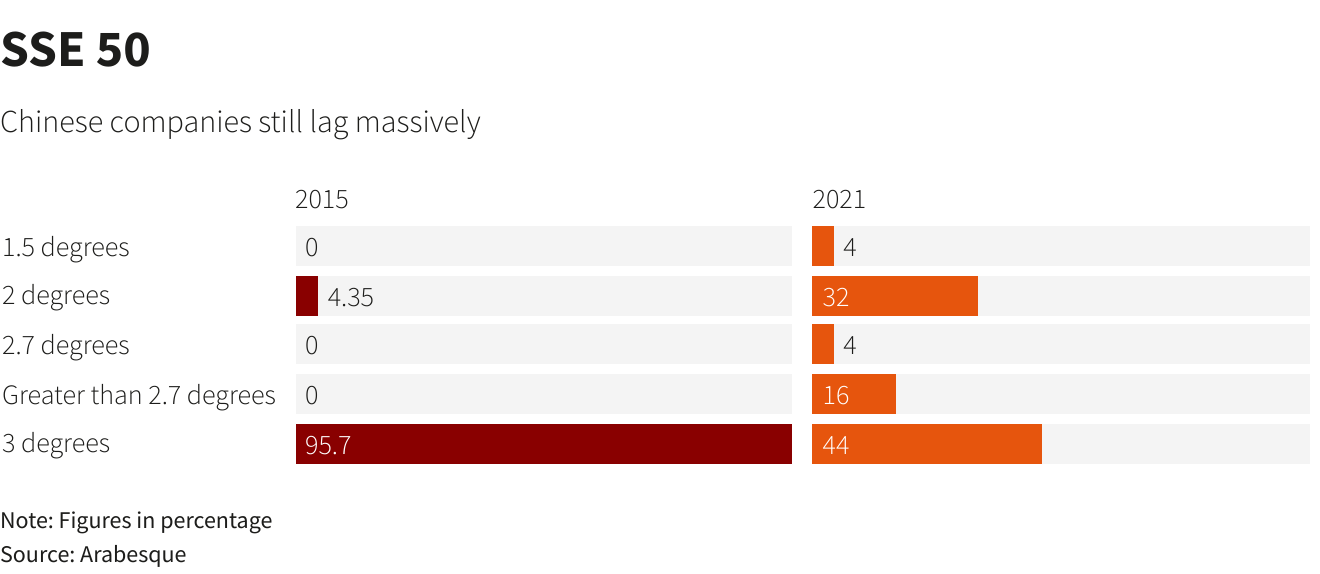
The figures for the analysis were created by scientifically modelling corporate climate data collated in the ‘ESG Book’, a digital source of sustainability data backed by some of the world’s top investors, regulators and companies, including HSBC and Deutsche Bank.
Companies that did not disclose their climate impact were scored as contributing a default 3-degrees-Celsius temperature rise.
There were signs of progress though in the United States, where alignment in companies on the benchmark S&P 500 index rose to 22% from 14%. While on Japan’s Nikkei alignment by companies rose to 30% from 24%.
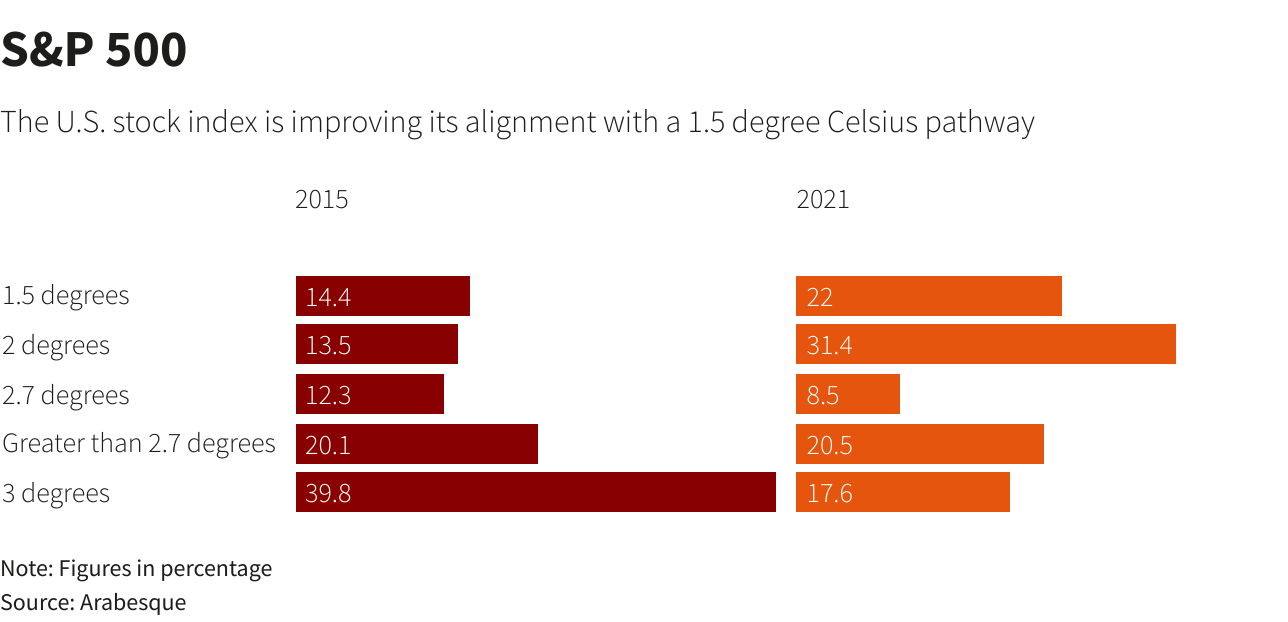
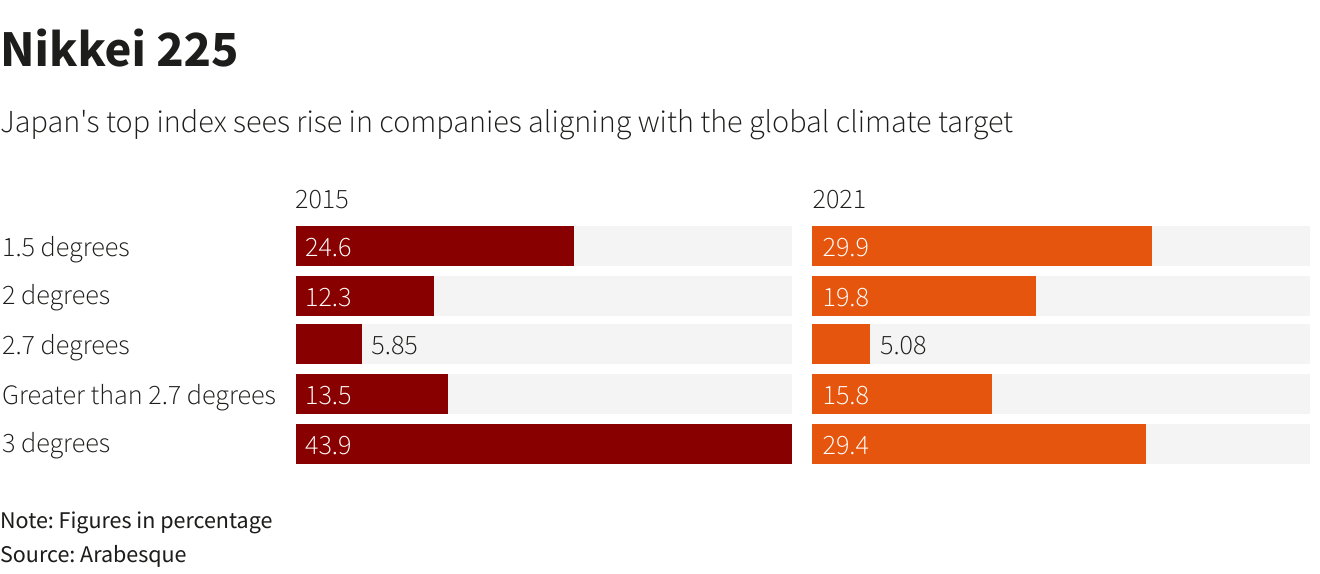
• Reuters with additional editing by Jim Pollard




